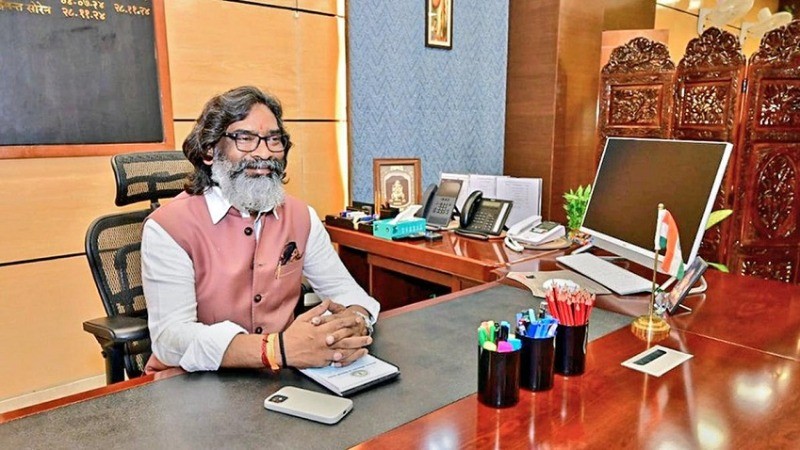
Jharkhand Chief Minister Hemant Soren has finalized the allocation of portfolios to his newly sworn-in ministers, retaining several key departments under his control. In a significant reshuffle, Soren has kept the Home Department, including prisons, the Cabinet Secretariat, Personnel, Administrative Reforms, Official Language, Road Construction, and Building Construction, along with departments yet to be assigned to others.
The distribution was announced through an official notification following the swearing-in ceremony of 11 ministers in the Jharkhand government. The move marks a pivotal step in setting up the administrative framework for Soren's tenure.
Key Portfolios Assigned to Ministers
Radhakrishna Kishore, a Congress MLA, has been entrusted with the Finance Department, a crucial portfolio managing the state's economic and fiscal policies.
Chamra Linda from the Jharkhand Mukti Morcha (JMM) has been allocated the departments of Scheduled Tribes, Scheduled Castes, Backward Classes, and Minority Welfare, underlining the administration's focus on inclusive growth.
The Rashtriya Janata Dal's (RJD) Sanjay Prasad Yadav will oversee the Labour, Employment, and Training Department, which plays a vital role in addressing employment challenges and workforce development in the state.
Congress MLA Irfan Ansari has been given charge of the Health, Medical Education, and Family Welfare Department. With health being a pressing priority, this portfolio is expected to be pivotal in enhancing healthcare services across Jharkhand.
Soren’s Strategic Portfolio Retention
By keeping control of critical departments like Home, Road Construction, and Administrative Reforms, Hemant Soren has positioned himself at the helm of decision-making in key areas. These portfolios not only involve public safety and infrastructure development but also influence the efficiency of governance and policy implementation.
Political Dynamics at Play
The distribution of portfolios reflects a careful balancing act between coalition partners in the Soren-led government. Each minister’s role has been strategically defined to ensure representation from different parties while addressing state priorities.
The 11 ministers sworn in alongside Soren on Thursday represent a diverse coalition, reinforcing the commitment to multi-party governance in Jharkhand. Soren himself had taken oath as Chief Minister earlier on November 28, marking the beginning of his leadership in the state.
Challenges Ahead
With portfolios now distributed, the government faces the challenge of meeting public expectations in areas such as infrastructure, employment, healthcare, and social welfare. The Chief Minister's retention of several pivotal departments underscores the need for a strong, centralized approach to addressing these challenges.